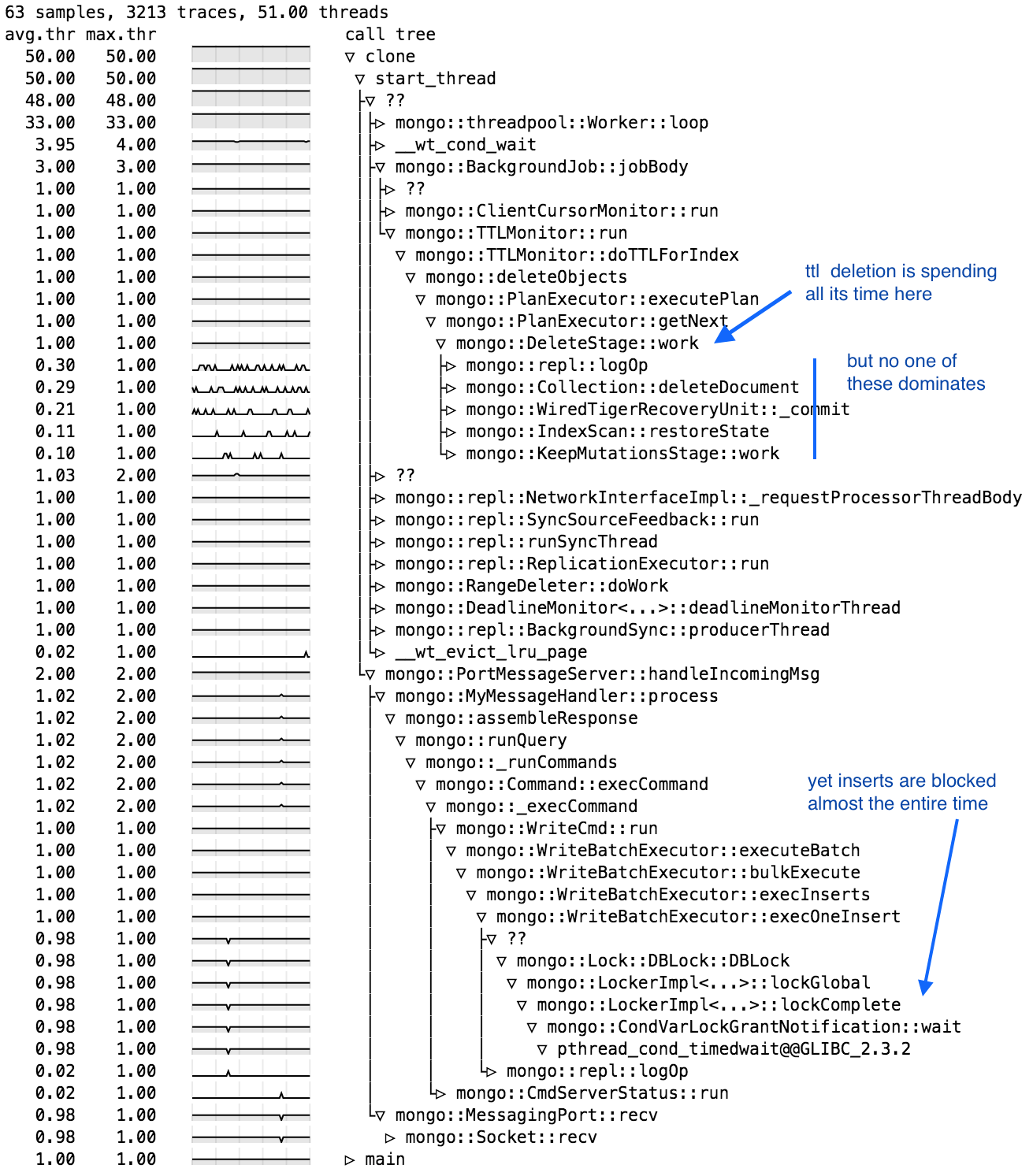-
Type:
Bug
-
Resolution: Done
-
Priority:
Critical - P2
-
Affects Version/s: 2.8.0-rc3, 2.8.0-rc4
-
Component/s: Performance, Replication, Storage
-
None
-
Fully Compatible
-
ALL
-
None
-
None
-
None
-
None
-
None
-
None
-
None
Set up a ttl collection with documents expiring after 30 seconds, and then start inserting:
var count = 10000000 var every = 10000 db.c.drop(); db.c.ensureIndex({ttl: 1}, {expireAfterSeconds: 30}); db.c.ensureIndex({i:1}) for (var i=0; i<count; ) { var bulk = db.c.initializeUnorderedBulkOp(); for (var j=0; j<every; i++, j++) bulk.insert({i: Math.random(), ttl: new Date()}); bulk.execute(); print(i) }
In a single-node replica set the TTL deletion passes almost entirely suppress the insertions - the spikes on the second graph indicate the start of TTL deletion passes.

Whereas with a standalone node, the TTL deletions have almost no noticeable effect on the insertions.

Gdb sampling profile shows the insertions being blocked and the TTL thread active, but does not immediately make it clear why the insertion thread is blocked the whole time - the TTL thread is doing a variety of things, many of which it will also be doing in the case of a standalone instance, so why should inserts be blocked in the case of a replica set and not standalone?

Under mmapv1 the TTL deletions interfere with the insertions but do not completely suppress them, both standalone and with replica set.
- related to
-
SERVER-16667 Isolated writes with extreme latencies in replica set under WiredTiger
-
- Closed
-